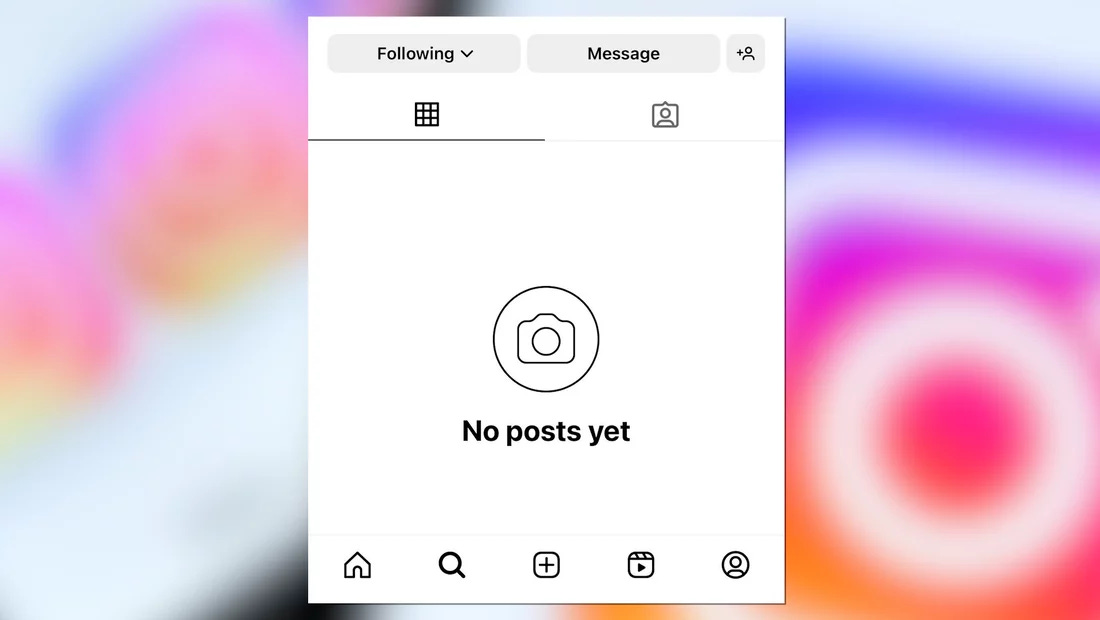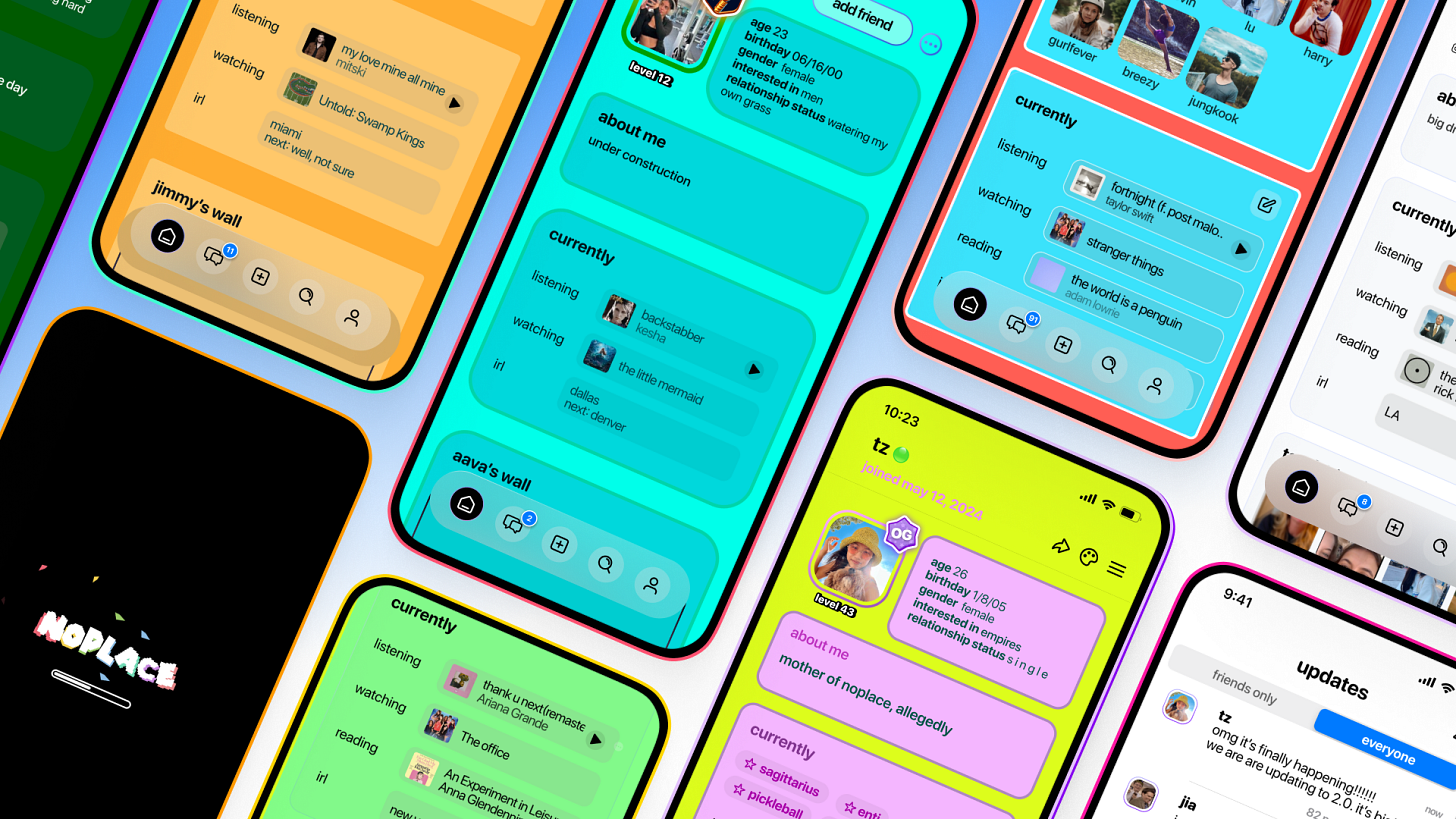Less Connected for More Connection
Why Gen Z is vanishing from Instagram and what privacy means today for Gen Z.
welcome to the 60+ new subscribers who joined after reading our The Risk of Being Relevant piece about The Great Brand Soup. Guess it’s soup szn (although not for Campbell…thanks for joining!
Privacy was not a priority to Gen Z when they first created their social media profiles.
Gen Z’ers willingly gave up their data & personal information, eager to sacrifice privacy for the convenience of relevant content.
Today, things are changing. The importance of privacy is becoming more and more critical - but not necessarily data privacy.
We’re talking about the type of privacy that allows us to bring meaning back into social media.
The type of privacy that lets Gen Z be both chronically and elusively online.
I wish my online presence was more…
In a poll of 667 Gen Z’ers, we found that 66% (2 in 3) of them wished their online presence was more private, while only 34% (1 in 3) say they wish their online presence was more public.
What happened to kids wanting to be YouTubers for a living over doctors or educators, and why do so many young people now want their online identities to be more private?
Gen Z is changing the public nature of social media
The Rise of 'Grid Zero': Why more Instagram users are hiding their profile (NPR)
According to cultural trend research from Meta, more and more Instagram users are archiving old posts, removing their profile pictures and even posting less on their main feeds, despite still being active on the app - and Gen Z is leading the charge.
The term “Grid Zero” refers to a growing phenomenon of young people hiding all their photos on their public Instagrams, often switching to use their “finstas”, or private accounts used to ‘dump’ more personal content, to share posts with a smaller group of friends.
As a result, Instagram has been shifting growth efforts away from public parts of the platform and toward more private ones, like direct messaging features.
"They totally have this almost aversion to permanence and digital footprints," Garcia [Cultural Intelligence Lead at Meta] said. "Gen Z is growing up in this era that is so public. They don't have the same private spaces to explore, or be weird, or figure themselves out, that older generations, like myself as a millennial, had growing up.”
How Noplace channeled early Facebook to reach Gen Z (Fast Company)
OG-Gen Z whisperer Tiffany Zhong created an app that recently hit #1 on the app store. Noplace is text-based and aims to mirror a more customizable, early-internet experience to escape the hyper-curated profiles and feeds of current apps.
After years of being on platforms where edited, curated, kind of photos of yourself—we’ve seen that play out and now we’re completely shifting to the other direction of “I just want a place where I can share whatever’s on my mind with close friends. I’m not trying to hyperedit every single photo anymore.” - Tiffany Zhong, CEO
what we’re thinking
Prioritizing privacy does not mean that Gen Z wants to avoid being on social media or engage less with others online - especially as the “loneliest” generation.
But finding truly meaningful & authentic connections has become harder to do on social media apps today. They have become places where young people go because they feel they have to, but leave feeling exhausted & unfulfilled.
Even updates to current apps are rubbing users the wrong way…
Gen Z has an unmet desire for closeness and intimacy with themselves and others that feels near impossible to find on social platforms as they exist today.
When we asked Gen Zers in our network why they think privacy is becoming more important, they said….
I feel as if, when people have like finstas or Twitter circles or a close friends list, it kind of creates this other layered sense of familiarity or closeness, in a sense. Like, I was just thinking about this yesterday - to be put on somebody's close friends, like somebody that you're not really best friends with but, you know of them - that's the highest form of flattery for me because it's like, dang, you trust me enough to join your close friends and I'm assuming you're posting, like the real you on here, as opposed to what you're posting on the main feed. - Male, 25
It's kind of like, you can just be yourself because I think a lot of social media when you have a lot of followers or you're focusing on likes, you're kind of thinking about, like, well what would people want to see on my page or what's, you know, maybe I have a hot take or something that I want to share with people but some people might not like that or it's controversial. So I think it just allows you to have more of an authentic voice. - Female, 23
After growing up in a state of constantly being perceived by others on social media, Gen Z is tired of having little control over how they are seen online.
Creating smaller circles, less public profiles, and limiting who they let in to see their ‘true’ selves - is one way for them to reclaim their online identities and have a more authentic online experience.
In an online landscape now dominated by brands and self-branding, showing up less—or at least remaining undetected—may help Gen Z regain some of the control they lost while growing up online.
Ironically for Gen Z, feeling truly ‘connected’ to others online could mean a digital world that is smaller than the one they once set out to create.
More on Gen Z, privacy & digital sleuthing
Is an Instagram ‘like’ micro-cheating? Gen Z embraces digital sleuthing. (The Washington Post)
Gen Zers have coined the term “micro-cheating” to describe leveraging social media to engage in ‘suspicious’ digital interactions while in a relationship. While this term refers to an act of betrayal, it also points to a calculated use of these platforms to avoid having an online trail.
People hand over the intimate details of their lives to tech companies every day, Gilgan says. It’s convenient for an alleged cheater to suddenly become privacy-conscious when they might get caught, she added. - Patrice Giligan, private investigator
What Gen Z craves now, with noplaces CEO Tiffany Zhong (Rapid Response on Spotify






